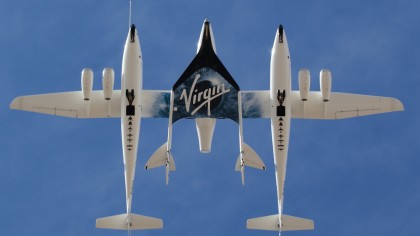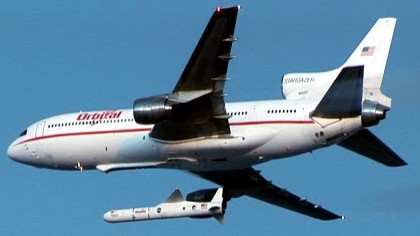Could an old Boeing 747 give everyone on the planet access to the internet?
LauncherOne rocket will launch from an old Virgin Atlantic plane to put CubeSats into orbit
Sign up for breaking news, reviews, opinion, top tech deals, and more.
You are now subscribed
Your newsletter sign-up was successful
Here's where it gets a little incestuous, because LauncherOne's biggest confirmed customer is OneWeb, an ambitious project to put a constellation of satellites in near-Earth orbit to provide affordable high-speed, satellite-based internet. OneWeb's chief investors are Qualcomm and – wait for it – the Virgin Group, though a recent round of investments saw the likes of Airbus, Coca-Cola, Intelsat and Hughes Network Systems also get involved.
OneWeb will launch the first 39 of its planned 700 satellites from LauncherOne, which gives the new service some confirmed flights. "There's also an option for 100 more, but even without it, it's one of the largest satellite orders on the books," says Pomerantz.
Competition in this sphere will come from SpaceX, backed by Google, which wants to provide a similar service, though its mooted 4,000 satellite-strong constellation will get to orbit via SpaceX's existing two-stage Falcon rockets, which will soon be fully reusable.
Virgin Galactic's smaller LauncherOne rocket, however, has no immediate plans to be reusable. "There's no need to do so – with a reusable airplane and an expendable rocket, we've got a good starting point, and a price our customers are happy with," says Pomerantz. "But in the long-term we want to make parts of the rocket reusable."

Turning point
Reusable or not, LauncherOne will see Virgin Galactic enter the space industry proper. Although its SpaceShipTwo space tourism product is the industry's most high profile, Virgin Galactic has so far been little more than a brand, contracting-out manufacturing completely. SpaceShipTwo is built by Scaled Composites, but LauncherOne is being designed and built by Virgin Galactic.
The SpaceShipTwo sub-orbital spacecraft blasts-off for the edge of space after being carried to 50,000ft by a jet-powered double-hulled cargo aircraft called WhiteKnightTwo. Couldn't LauncherOne do the same? It could, but so precious are high altitude flights that WhiteKnightTwo and SpaceShipTwo – when they finally get in the air again after the 2014 crash – are all booked-up.
"NASA is a customer of ours on both sides of the curtain – it's already purchased a LauncherOne flight and has chartered a test-flight of SpaceShipTwo launch, and will be using them to do small satellite science," says Pomerantz. For now, those payloads remain on the interior of SpaceShipTwo in the passenger compartment.
Sign up for breaking news, reviews, opinion, top tech deals, and more.
"After we're in commercial operation and we're proven, we will look at ways we can carry experiments on the outside of SpaceShipTwo so they can be directly exposed to the space environment … a lot of our customers ultimately do want to launch a satellite, but before they take that leap they want to get the hardware some space flight experience," he says.

So is Virgin Galactic a space tourism or a satellite launching company? "We're equally excited about both," says Pomerantz. "There's a ton of innovation and a ton of investment in the small satellite industry," he says of the US$2-3 billion injections in the last year or so, citing the now Google-owned satellite imaging company Skybox Imaging and Planet Labs' 113 Dove satellites that provide Earth imagery as examples. "It's the most exciting part of the space industry right now."

Jamie is a freelance tech, travel and space journalist based in the UK. He’s been writing regularly for Techradar since it was launched in 2008 and also writes regularly for Forbes, The Telegraph, the South China Morning Post, Sky & Telescope and the Sky At Night magazine as well as other Future titles T3, Digital Camera World, All About Space and Space.com. He also edits two of his own websites, TravGear.com and WhenIsTheNextEclipse.com that reflect his obsession with travel gear and solar eclipse travel. He is the author of A Stargazing Program For Beginners (Springer, 2015),